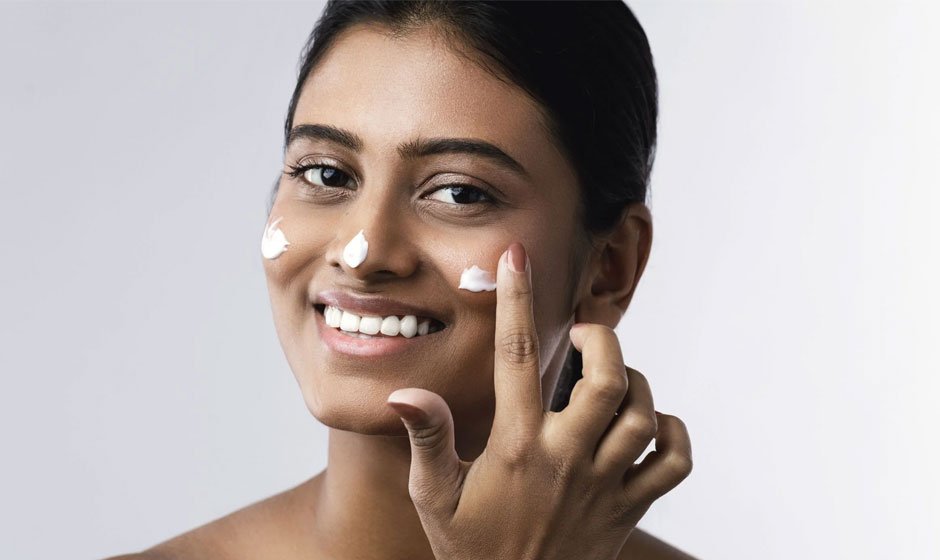Facial moisturizers are essential to daily skincare routines, serving to hydrate and protect the skin. However, choosing the right facial moisturizer can be daunting due to the myriad of available options. The ideal moisturizer should cater to your skin type, concerns, and preferences. We will explore various factors to consider when selecting the right facial moisturizer for your needs. By comprehending these tips, you can make an informed choice and achieve healthy, radiant skin.
Factors to consider when selecting the right facial moisturizer
1. Understanding Your Skin Type:
Before you start browsing moisturizers, it’s crucial to identify your skin type. Skin types can be broadly categorized as normal, dry, oily, combination, or sensitive. Each type has unique characteristics that require specific moisturizing formulations. Normal skin typically benefits from lightweight, hydrating moisturizers, while dry skin requires richer, emollient creams. Oily skin benefits from oil-free or gel-based moisturizers, while combination skin may need different products for various facial areas. Sensitive skin demands gentle, hypoallergenic options. Knowing your skin type is the first step in narrowing down your choices.
2. Consider Your Skin Concerns:
In addition to skin type, consider any specific skin concerns. Do you have fine lines and wrinkles that need addressing? Is acne or blemish control a priority? Do you want a moisturizer with sun protection for anti-aging benefits? Identifying your skin concerns will help you choose a product that hydrates and targets your needs. Look for moisturizers with ingredients like hyaluronic acid for hydration, retinol for anti-aging, salicylic acid for acne-prone skin, or niacinamide for overall skin health.
3. Read the Ingredient List:
The ingredient list on a moisturizer can provide valuable insights into its formulation. Ingredients are usually listed in descending order of concentration, so those at the top have higher concentrations in the product. Skim for critical ingredients that align with your skincare goals. For example, if you seek hydration, glycerin, hyaluronic acid, and ceramides are excellent moisturizing agents. For anti-aging benefits, ingredients like peptides, antioxidants, and retinoids are valuable. Avoid products with potential irritants or allergens if you have sensitive skin.
4. SPF for Daytime Use:
If you plan to use your moisturizer during the day, consider one with built-in sun protection (SPF). UV rays from the sun can cause premature aging, pigmentation issues, and skin cancer. A daily SPF of at least 30 is recommended to shield your skin from these harmful effects. Choosing a moisturizer with SPF simplifies your skincare routine, combining hydration and sun protection in one step. Ensure the SPF in your moisturizer provides broad-spectrum protection against UVA and UVB rays.
5. Texture and Consistency:
The texture and consistency of a moisturizer can enormously influence your skincare experience. Creams are thicker and provide deep hydration, making them suitable for dry skin. Lotions are lighter and ideal for normal to combination skin. Gels are lightweight and non-greasy, suitable for oily or acne-prone skin. Serums are highly concentrated and target-specific concerns like fine lines or pigmentation. Choose a texture that you find pleasant to apply and wear, as you’ll be more likely to use it consistently.
6. Fragrance-Free Options:
Fragrances in skin care products can be problematic for sensitive skin, as they may usher to irritation or allergic reactions. Fragrance-free moisturizers are a safer choice, especially if you have sensitive or easily irritated skin. While fragrance may enhance the sensory experience, it doesn’t affect the moisturizer’s efficacy. Unscented products are formulated without added fragrances and are often better suited for individuals with sensitive skin or fragrance allergies.
7. Consider Seasonal Changes:
Your skin’s needs can vary with the seasons. During winter, when the air is dry and humidity is low, you may require a heavier, more emollient moisturizer to combat dryness. In distinction, summer may call for a lighter, oil-free moisturizer to prevent clogged pores and excessive shine. Consider adjusting your moisturizer seasonally to accommodate these changes and ensure your skin stays comfortable and balanced year-round.
8. Patch Testing:
Before applying a new moisturizer to your entire face, perform a patch test. Apply a small amount of the product to a discreet area of your skin, like the inside of your wrist or behind your ear. Monitor the area for any adverse reactions, such as redness, itching, or irritation, over 24-48 hours. If no reaction occurs, using the product on your face is generally safe. Patch testing helps stem potential skin issues and allows you to identify any allergies or sensitivities to the product.
9. We Consider Brand Reputation:
Brand reputation and product reviews can provide insights into a moisturizer’s quality and effectiveness. Established brands with a history of skincare expertise may offer more reliable products. Reading reviews from other users can also offer valuable information about a product’s performance, especially if they share similar skin concerns or types. Remember that what works for one person may not work for another, so consider the overall consensus rather than individual opinions.
10. Budget and Affordability:
Your budget is an essential consideration when choosing a facial moisturizer. Skincare products range from affordable drugstore options to high-end luxury brands. While expensive products may offer unique ingredients or packaging, effective moisturizers are available at various prices. Determine how much you’re willing to invest in your skincare routine and explore options within your budget that meet your specific needs.
Choosing the right facial moisturizer is paramount in maintaining healthy, radiant skin. You can make a knowledgeable choice by comprehending your skin type, addressing specific concerns, scrutinizing ingredient lists, and considering factors like SPF, texture, and fragrance. Remember that skincare is a highly individualized journey, and what works for one person may not work for another. Take the time to experiment and find a moisturizer that suits your skin’s unique needs, and don’t hesitate to seek professional advice if you have specific concerns or conditions. Eventually, a well-selected premium facial cream moisturizer can contribute to a more youthful, hydrated, and glowing complexion.

